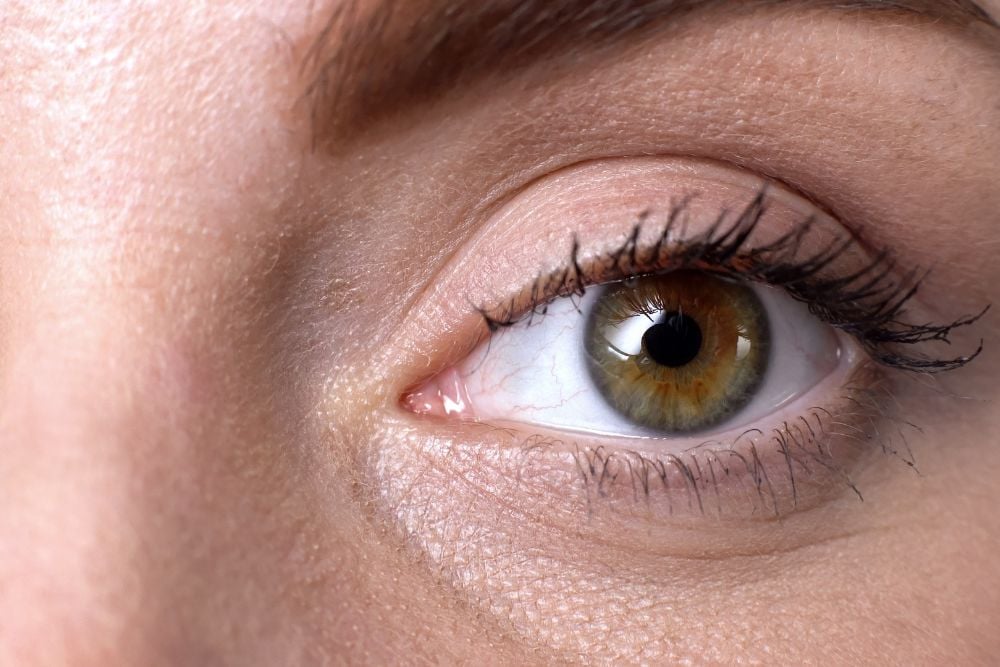Can Dehydration Impact Your Retinal Health?

Hydration is essential to health, as its benefits include delivering nutrients to cells, organ function, body temperature regulation, joint lubrication, and sleep quality. Should your body lose more water than enters it, you may be at risk for dehydration. About 75% of Americans may be chronically dehydrated, and for your eyes and retina, this is a serious health threat. Hydration is crucial to your eyes’ blood flow, tear production, and reducing dry eye risk. Dehydration also worsens retinal conditions, including diabetic retinopathy.
Hydration’s Impact on Tear Production and Retinal Health
Staying well-hydrated maintains a healthy balance of fluid in the eye. The eyes are almost completely composed of water, as the vitreous gel that fills the eye is 98-99% water. Additionally, our eyes are surrounded by a tear film, with oily, watery, and mucous layers.
The aqueous humor, the most important component of the tear film, is also composed mostly of water. Surrounding your eye, this fluid protects it by washing away debris and dust when you blink. Dehydration can affect this part of the tear film, causing irritation and breaking down the eye’s surface. A lack of tear production is a dehydration symptom, as well.
Hydration provides lubrication for the tear glands to produce sufficient tears and keep the eyes properly moisturized. Without regular tear production, you may be at risk for dry eye disease. Should this common condition develop, light may be prevented from entering, which can reduce visual clarity. Other symptoms include:
- Blurred vision
- Eye floaters
- Headaches
- Strained vision
- Light sensitivity
- Problems wearing contacts
- Burning, irritation, scratchiness, or a stinging sensation in your eyes
Dehydration’s Impact On Retinal Function
Research suggests that dehydration is associated with the development of various retinal conditions, including cataracts, glaucoma, and diabetic retinopathy. In addition, drinking enough water plays an important role in blood function, including purification and healthy blood flow to and from and within the eyes.
Glaucoma
Normally, our eyes maintain pressure to ensure proper function, but dehydration can lead to an imbalance. This can raise the eyes’ fluid pressure, resulting in glaucoma. While anyone can develop glaucoma, it’s a leading cause of blindness for those over the age of 60.
Cataracts
Cataracts occur when the eye’s natural lens clouds over. Constant eye dehydration may make it more likely for cataracts to develop sooner, resulting in vision becoming blurred and cloudy. More than half of all Americans age 80 or older either have cataracts or have had surgery for them.
Diabetic Retinopathy
With diabetic retinopathy, over time, higher blood sugar levels associated with diabetes damage retinal blood vessels. When new blood vessels grow, they’re abnormal, fragile, and can cause leaking or bleeding. Common with diabetes (any type), adults with lower hydration levels have increased diabetic retinopathy risks, especially older adults. Certain diabetes symptoms that increase dehydration risks may worsen with aging, including increased thirst, polyuria (excessive urination), and reduced total body water and fluid levels.
Lifestyle Changes For Dehydration
The most effective way to improve hydration is by drinking enough water. A healthy person should drink eight 8-ounce glasses of water every day. You should also avoid drinking beverages with caffeine or alcohol. You may also be able to relieve dry eyes with over-the-counter eye drops, blinking frequently, and avoiding allergens and windy places.
Schedule a Retinal Consultation in San Diego
Being sufficiently hydrated is essential for proper retinal health. If you have any questions or you’re experiencing a retina-related issue, we encourage you to contact Retina Consultants San Diego.

